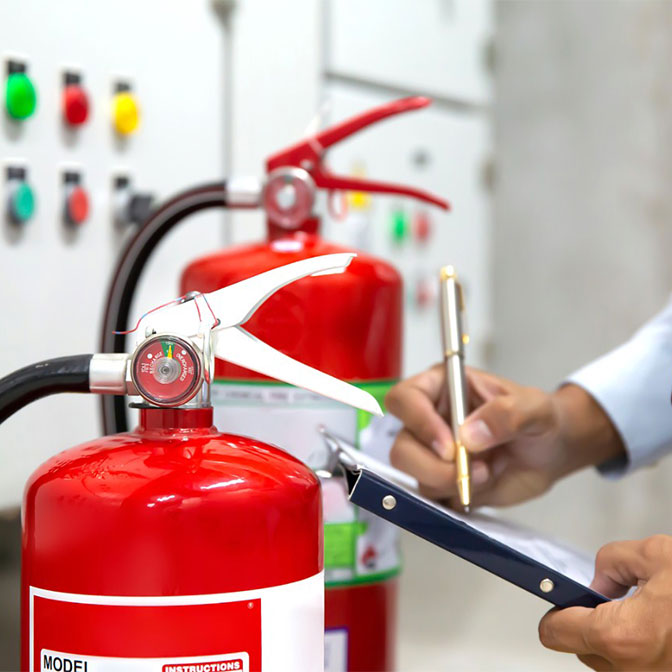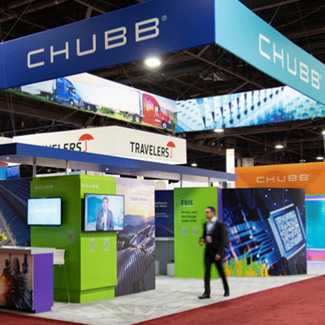Course Catalog

Property Course Descriptions
Please note, pricing listed is per person. All courses can be offered in person or virtually via live stream from the Risk Engineering Center. In person sessions are offered at the Risk Engineering Center, 35 Columbia Road, Branchburg, NJ. Email the CREC, crec@chubb.com, for pricing on private sessions.
6.5 Contact Hours | $600
Start Time: 8:30 am ET
8-hours In Person – Chubb Risk Engineering Center – 35 Columbia Road, Branchburg, NJ
This one-day training is a mix of classroom and hands-on demonstrations reviewing the various water supplies that exist for fire protection systems including suction, pressure, gravity tanks, fire pumps, and more. The training reviews the various components of automatic sprinkler systems, as well as the wet pipe sprinkler system. Hands-on activities include water supply testing, analysis of test results, fire protection control valve inspection, and live fire with sprinkler activation. NFPA 25 testing requirements for wet pipe and control valves are reviewed and demonstrated.
Virtual
6 Contact Hours | $300 per person
6 Hours of Training (Session can be provided in two 3-hour sessions or four 2-hour sessions)
This course reviews the various water supplies that exist for fire protection systems including suction, pressure, gravity tanks, fire pumps, and more. The various components of automatic sprinkler systems, as well as the wet pipe sprinkler system is covered. Live streamed demonstrations include water supply testing, analysis of test results, fire protection control valve inspection, and fire with sprinkler activation. NFPA 25 testing requirements for wet pipe and control valves are reviewed and demonstrated.
6.5 Contact Hours | $600
Start Time: 8:30 am ET
8-hours In Person – Chubb Risk Engineering Center – 35 Columbia Road, Branchburg, NJ
This one-day training is a mix of classroom and hands-on demonstrations that review the components and operation of the dry, pre-action, and deluge sprinkler systems. Fire detection systems will be reviewed, including how they interact with the pre-action and deluge systems. Hands-on activities include tripping and resetting the dry pipe, pre-action, and deluge valves. NFPA 25 testing requirements for these systems will be reviewed and demonstrated.
Virtual
6 Contact Hours | $300 per person
6 Hours of Training (Session can be provided in two 3-hour sessions or four 2-hour sessions)
This course reviews the components and operation of the dry, pre-action, and deluge sprinkler systems. Fire detection systems will be reviewed, including how the detection interacts with the pre-action and deluge systems. Live streamed demonstrations include tripping and resetting the dry pipe, pre-action, and deluge valves. NFPA 25 testing requirements for these systems will be reviewed and demonstrated.
6.5 Contact Hours | $600
Start Time: 8:30 am ET
8-hours In Person – Chubb Risk Engineering Center – 35 Columbia Road, Branchburg, NJ
This one-day training is a mix of classroom and hands-on demonstrations that review automatic fire pumps including drivers, controllers, and various other components. Hands-on activities include annual fire pump test on the electric booster pump. Attendees will graph fire pump test data and learn how to evaluate fire pump performance. NFPA 25 testing requirements for fire pumps and controllers are reviewed and demonstrated.
Virtual
6 Contact Hours | $300 per person
6 Hours of Training (Session can be provided in two 3-hour sessions or four 2-hour sessions)
This course reviews automatic fire pumps including drivers, controllers, and various other components. Live streamed demonstration includes annual fire pump test on the electric booster pump. Attendees will graph fire pump test data and learn how to evaluate fire pump performance. NFPA 25 testing requirements for fire pumps and controllers are reviewed and demonstrated.
13 Contact Hours | $1,200
Start Time: 8:30 am ET
16-hours In Person – Chubb Risk Engineering Center –35 Columbia Road, Branchburg, NJ
This two-day training is a mix of classroom and hands-on demonstrations reviewing NFPA 25 requirements, including how to test various fire protection equipment to meet the NFPA standard. Live demonstrations include testing the wet, dry, pre-action, and deluge valves, and activating sprinklers via live fire. Attendees will learn to conduct annual fire pump tests and water supply testing, as well as graph and interpret fire pump test and water supply data. Join us for this interactive session, where risk prevention is possible!
Virtual
12 Contact Hours | $600 per person
12 Hours of Training (Session can be provided in four 3-hour sessions)
This course reviews NFPA 25 requirements, including how to test various fire protection equipment to meet the NFPA standard. Live streamed demonstrations include testing the wet, dry, pre-action, and deluge valves, and activating sprinklers via live fire. Attendees will learn to conduct annual fire pump tests and water supply testing, as well as graph and interpret fire pump test and water supply data.
6.5 Contact Hours | $600
Start Time: 8:30 am ET
8-hours In Person – Chubb Risk Engineering Center – 35 Columbia Road, Branchburg, NJ
This one-day training is a combination of classroom and hands-on demonstrations focusing on fire detection and alarm systems. Initiating devices, control units, notification devices, and inspection & testing of NFPA 72 are discussed. With live demonstrations, such as fire detection activation, learning requirements has never been more enjoyable.
Virtual
12 Contact Hours | $300 per person
12 Hours of Training (Session can be provided in four 3-hour sessions)
This course reviews NFPA 25 requirements, including how to test various fire protection equipment to meet the NFPA standard. Live streamed demonstrations include testing the wet, dry, pre-action, and deluge valves, and activating sprinklers via live fire. Attendees will learn to conduct annual fire pump tests and water supply testing, as well as graph and interpret fire pump test and water supply data.
13 Contact Hours | $1,200
Start Time: 8:30 am ET
16-hours In Person – Chubb Risk Center – 35 Columbia Road, Branchburg, NJ
This two-day educational training offers an interactive combination of classroom and hands-on demonstrations, reviewing NFPA 13 requirements for warehouse fire protection. Our risk engineering professionals will engage with you in topics such as sprinkler systems, common warehouse problems, general storage and rack storage sprinkler requirements, commodity classification, ESFR sprinklers, flammable & combustible liquid storage sprinkler requirements and fire doors.
Virtual
12 Contact Hours | $600 per person
12 Hours of Training (Session can be provided in four 3-hour sessions)
This course reviews NFPA 25 requirements, including how to test various fire protection equipment to meet the NFPA standard. Live streamed demonstrations include testing the wet, dry, pre-action, and deluge valves, and activating sprinklers via live fire. Attendees will learn to conduct annual fire pump tests and water supply testing, as well as graph and interpret fire pump test and water supply data.
13 Contact Hours | $1,200
Start Time: 8:30 am ET
16-hours In Person – Chubb Risk Engineering Center – 35 Columbia Road, Branchburg, NJ
This two-day interactive training will walk participants through reading drawings, identifying components, approving system design, evaluating water supplies, and reviewing hydraulic calculations – all within NFPA 13 standards. Attendees will participate in a plan review exercise.
Virtual
12 Contact Hours | $600 per person
12 Hours of Training (Session can be provided in four 3-hour sessions)
This course will walk participants through reading fire protection drawings, identifying components, approving system design, evaluating water supplies, and reviewing hydraulic calculations – all within NFPA 13 standards. Attendees will participate in a plan review exercise.
6.5 Contact Hours | $600
Start Time: 8:30 am ET
8-hours In Person – Chubb Risk Engineering Center – 35 Columbia Road, Branchburg, NJ
This one-day interactive training offers a mixture of classroom and hands-on live demonstrations bringing standpipe systems processes and exposures to life. NFPA 14, IBC and NFPA 25 will be discussed as well as installation and testing of standpipe systems. Learning is more engaging through live demonstrations; we invite you to learn more with our Risk Engineering instructors who are knowledgeable and offer interactive experiences.
Virtual
6 Contact Hours | $300 per person
6 Hours of Training (Session can be provided in two 3-hour sessions or four 2-hour sessions)
This course reviews standpipe systems. NFPA 14, IBC and NFPA 25 will be discussed as well as installation and testing of standpipe systems. Live streamed demonstrations will walk participants through the testing of standpipe systems.
The following virtual sessions can also be combined and offered in person.
1 Contact Hour | $50 per person
1-hour webinar
During this webinar participants will learn to differentiate between a cloud and NFPA cloud ceiling, how prior NFPA 13 editions approached cloud ceilings and sprinkler protection. By the end of the session, attendees will be able to answer the following question: Under what conditions can sprinklers be omitted above a cloud ceiling per NFPA 13 requirements?
2 Contact Hours | $100 per person
2-hour webinar
This two-hour webinar trains participants on commodity classifications, warehouse storage arrangements, fire protection schemes, common hazards, and the importance of pre-planning with the Fire Department to ensure the safety of your business and employees and will include live streamed demonstrations.
1 Contact Hour | $50 per person
1-hour webinar
During this 1-hour webinar participants will learn quick response reduction calculations, requirements, and common pitfalls to consider for design area reduction. The session will include practice examples for calculating design areas.
1 Contact Hour | $50 per person
1-hour webinar
Hot work operations start thousands of fires each year. A defined and implemented hot work program is key to preventing property damage and injury. In this educational webinar, we invite you to join us as we discuss what hot work is, trends and losses caused by hot work, general precautions, and risk engineering tools to help design a hot work program for your business.
1 Contact Hour | $50 per person
1-hour webinar
In this one-hour interactive webinar our Risk Engineering instructors will walk participants through the definition of a main drain test, the NFPA requirements and how to perform and interpret the test results. This educational session will include a live streamed demonstration on a main drain test, performed at the Chubb Risk Engineering Center – where prevention is possible.
1 Contact Hours | $50 per person
1-hour webinar
This session will provide attendees with a basic understanding of room design methodology, concepts of separate/small rooms, fire resistance of construction, and when to use this methodology.
2 Contact Hours | $100 per person
2-hours webinar
This 2-hour webinar will Special hazards present unique and greater fire peril to facilities. Rapidly developing fires and explosions can occur with flammable liquid use, dusty operations, flammable gas use, exotic metals, and so on. While fire sprinklers designed for occupancy hazards generally control building fires, special hazards exposures generally require additional levels of protection for control and/or suppression. Live streamed demonstrations are included.
Equipment Breakdown Course Descriptions
3 Contact Hours | In Person: $300 per person | Virtual: $150 per person
Course is offered in person and virtually
Attendees of the training will learn how controls and safety device’s function, how they can be tested, and what are the common failure mechanisms. Each attendee will also have an opportunity to participate in an open discussion about industry standard preventative maintenance practices and learn how preventative maintenance can significantly reduce outages.
3 Contact Hours | In Person: $300 per person | Virtual: $150 per person
Course is offered in person and virtually
Attendees of this training will attain a fundamental understanding of water treatment methods and the ability to evaluate current water treatment performance. You will learn the reasons to establish a water treatment program and the impact it can have on your system’s reliability, fuel/energy consumption and safety. The completion of the course will enhance your ability to effectively communicate with your chemical treatment vendor, internal management, boiler, and HVAC system maintenance vendors.
Casualty Course Descriptions
1 Contact Hour | Webinar
Electric vehicles (EVs) are emerging as a key component toward achieving climate change resiliency. While electric vehicles are currently estimated to comprise less than two percent of the new car market, interest has increased dramatically. This 1-hour webinar will provide an overview of the EV charging technology and some of the public liability risk management considerations that should be factored into an organization’s decision to add EVSE services to their operations.
1 Contact Hour | Webinar
Even though slips and falls are one of the most preventable injury types, they remain one of the leading sources of injuries both at home and work. This 1-hour webinar will discuss a perspective on utilizing a risk management assessment process to help quantify some of the uncertainties associated with managing slip and fall exposures in conjunction with the use of tribometry. Attendees will obtain a holistic approach to slip and fall prevention by utilizing a risk assessment process that quantifies tribometry scores along with other slip and fall factors, as well as improve their slip and fall assessment skills by discussing real-life tribometer scenarios and successful mitigation strategies.
1 Contact Hour | Webinar
At the peak of the pandemic, nearly 83% of office workers were working from home and this transition to remote work for many companies took place with little opportunity to plan. Now, that many employees are offered some form of remote working, companies need to ensure that they are receiving the expected benefits from their offer of remote work options. This 1-hour webinar will review some of the unique exposures that having a remote workforce presents and we will share some suggested controls to help manage this risk and ensure that the expected benefits from offering remote work options are recognized.
Auto Course Descriptions
1 Contact Hour | Webinar
This 1-hour session provides an overview of autonomous vehicle (AV) technology. It explores the current advances toward full automation and the challenges faced to get there. Information on the status of original equipment manufacturers and areas where AVs are already deployed is included, as is an explanation of major AV component technologies that provide capabilities for perception, localization, mapping, and prediction.
Typical state regulatory approaches for AV testing are addressed and test data results and disengagement trends reviewed. Additionally, a brief history of AV crashes during testing, along with lessons-learned and changes implemented are discussed.
1 Contact Hour | Webinar
This webinar will provide guidance for the development of a fleet safety program including demonstrating the areas of focus necessary. Major topics will include leadership administration, driver management, vehicle management and incident management. Formalizing fleet controls will promote consistency and help foster a safety culture to help reduce vehicle accidents and driver injuries. This course will address most types of vehicle operations associated with company fleet operations including regulated, non-regulated, off-road, hired non-owned, non-employees driving company vehicles, and third parties delivering on your company’s behalf.
1 Contact Hour | Webinar
This training will discuss the impact distracted driving can have on employees. During the session the facilitator will define distracted driving, share the types of distractions, provide driver safety tips and the various resources available.
1 Contact Hour | Webinar
This one-hour webinar will discuss and answer the questions:
- What is a high-risk driver?
- Why is it important to identify them?
- How to manage the high-risk driver
1 Contact Hour | Webinar
This one-hour webinar describes the risk factors that all new teen drivers encounter. It will go through statistics showing the heightened severity of teen driving accidents and what factors contribute to it. Parents and others can help teen drivers understand the risk and provide strategies ensuring teens are best prepared for the road ahead.
1 Contact Hour | Webinar
Most companies know the importance of and take action to implement a formal fleet safety program for the Company Cars they own. However, very frequently, companies fail to extend these fleet policies and programs over to their hired and non-owned auto drivers and fleet. This webinar will define hired and non-owned autos, who is an insured, exposures, losses, and risk mitigation strategies to avoid exposure and losses that can affect the bottom line.









